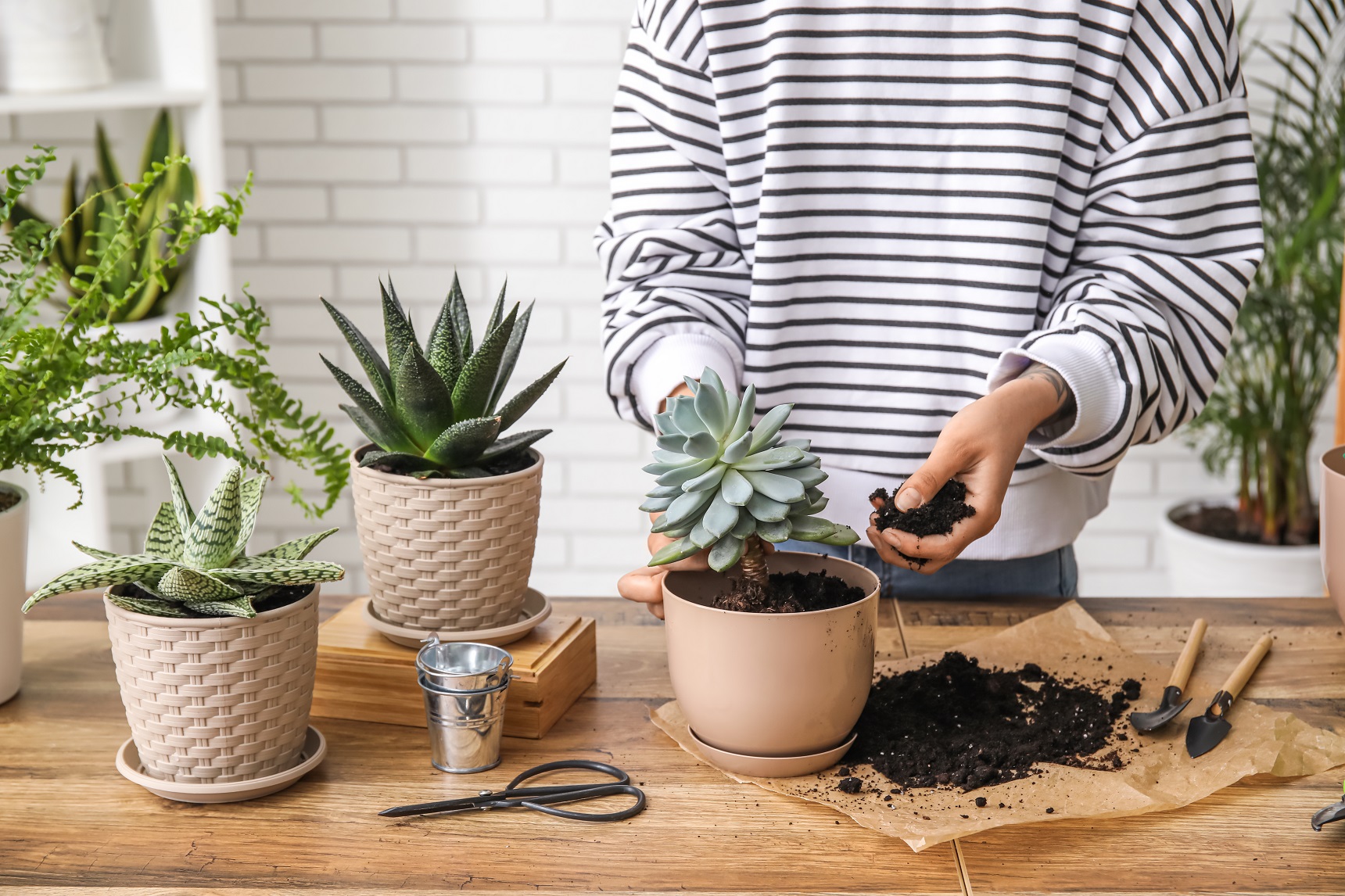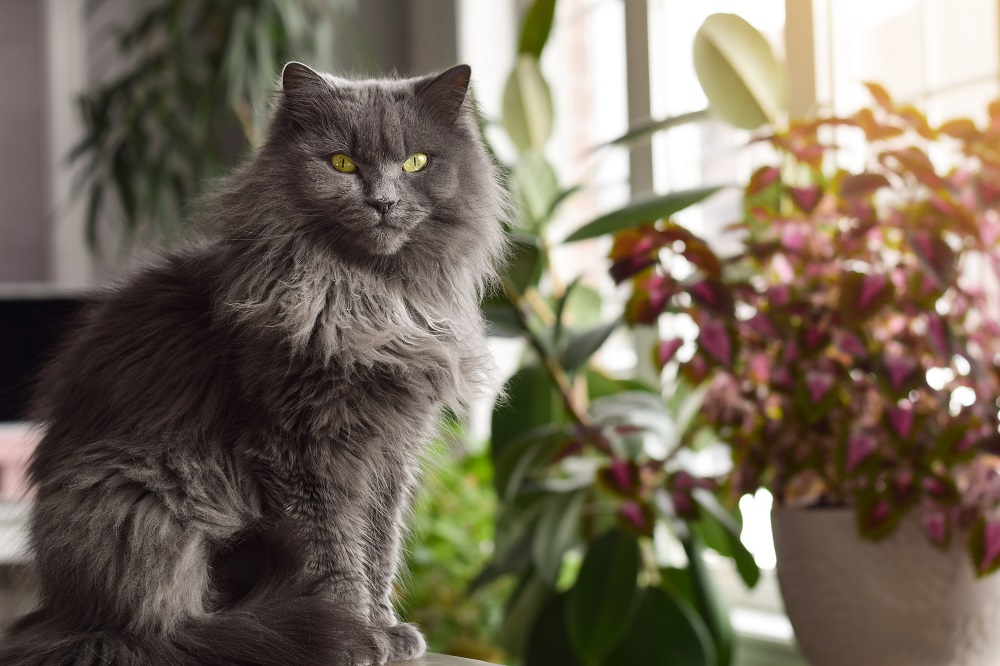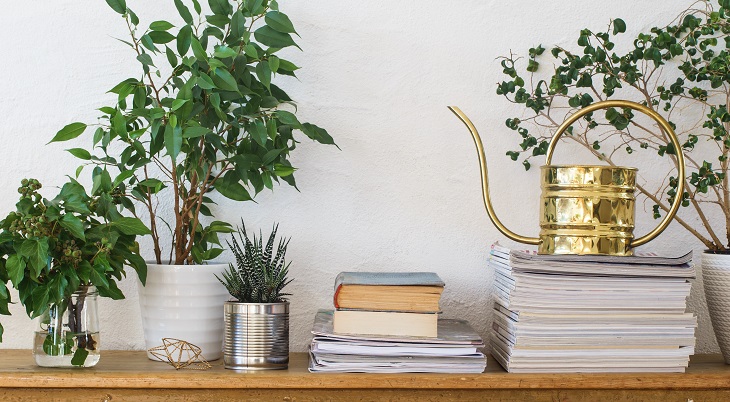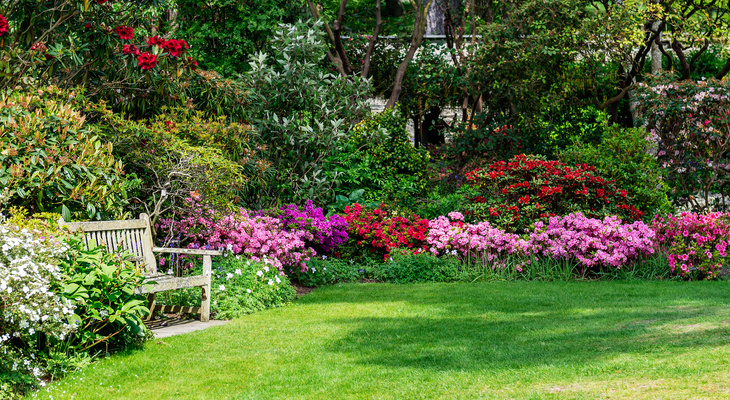Bring Nature Indoors: Your Guide to House Plants
The benefits of surrounding yourself with leafy greens and pretty petals are endless, in fact, research carried out by NASA revealed that house plants can remove up to 87% of air toxins in just 24 hours!* Taking care of house plants engages nurturing instincts that encourage us to care for our surroundings - and in turn, ourselves. Bring some of that outdoor green goodness inside this season with this handy guide.
Don’t bite off more than you can chew

If you’re a first-time plant parent or you’re on a busy schedule, low-maintenance succulents like echeveria and cacti are a great place to start. Similarly, if you’re all about the aesthetics but not the upkeep, amp up your shelves with elegant trailing plants like Ceropegia (‘String of Hearts), as they don’t mind being ignored and they look great around the home.
Use the right light
Plants thrive off of sunlight as it is their primary source of energy, so it’s important that they get the right amount. However, direct sunlight isn’t always a good thing, so ignore your instinct to place all your houseplants at your south-facing window where the sun floods in every day. The best place for many house plants will be close to an east-facing window, where they can bask in bright, but indirect light. Make sure to look up advice online before choosing your placement – every plant is different!
Stick to a watering routine
Over-watering or underwatering are the most common examples of bad plant-parenting, so shake this habit with a solid watering schedule. If you’re trying to nurture several plants at once, you may need to undergo some trial and error first. The best way to tell if your plant needs water is to monitor the soil for dryness. As a rule of green-thumb, if the top 2 inches of soil are moist, your plant is sufficiently quenched. Daily checks might encourage you to draw up a reliable watering schedule on a kitchen chalkboard so that your plants are getting enough of what they need – but not too much.
Think pet safety

If your home is filled with furry friends, be cautious when adding plants into the mix, as many house plants are toxic to pets. A quick online search before any purchase will keep your pets safe from things like Golden Pothos, Devil’s Ivy and Dracaena (to name a few!).
Use mist
Squirting foliage with water is great for your plants – but maybe not for the reason you think. Contrary to popular belief, mist won’t be able to efficiently increase the humidity for your plants. Mist will, however, keep your plant’s leaves fresh and clean by removing dust – which in turn will allow better sun exposure.
Let it grow!
If you have an inkling that your plant needs a new pot, check the root systems for signs of overgrowth. If the roots are circling inside the container, it’s more than likely time for it to move out to somewhere more spacious.
Have you outgrown your home, too?
If you are looking to sell or find a home that meets all of your needs, contact your local Guild Member today.






